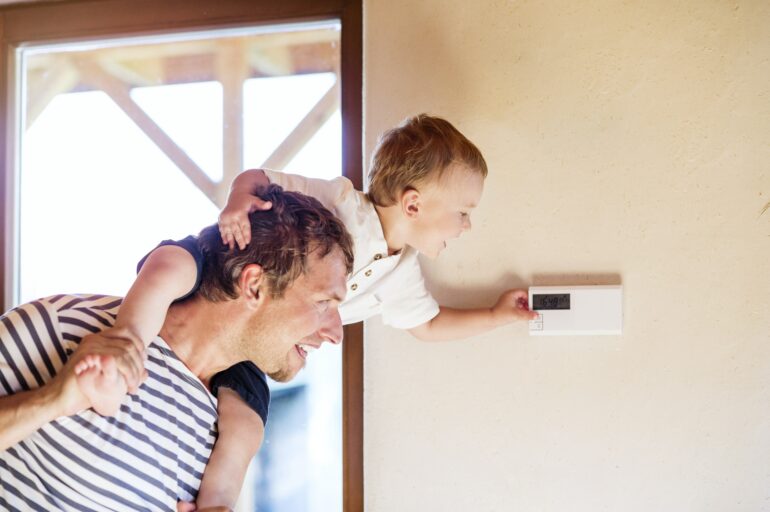Hot summer days can mean high electricity bills. People want to stay comfortable without wasting energy and money. Maybe your household has fought over the best strategy for cooling your space. Which is more efficient: running the air conditioning all summer long without break, or turning it off during the day when you’re not there to enjoy it?
We are a team of architectural and building systems engineers who used energy models that simulate heat transfer and A/C system performance to tackle this perennial question: Will you need to remove more heat from your home by continuously removing heat throughout the day or removing excess heat only at the end of the day?
The answer boils down to how energy intensive it is to remove heat from your home. It’s influenced by many factors such as how well your house is insulated, the size and type of your air conditioner and outdoor temperature and humidity.
According to our unpublished calculations, letting your home heat up while you’re out at work and cooling it when you get home can use less energy than keeping it consistently cool – but it depends.
Blast A/C all day, even when you’re away?
First, think about how heat accumulates in the first place. It flows into your home when the building has less stored heat than outside. If the amount of heat flowing into your home is given by a rate of “1 unit per hour,” your A/C will always have 1 unit of heat to remove every hour. If you turn off your A/C and let the heat accumulate, you could have up to eight hours’ worth of heat at the end of the day.
It’s often less than that, though – homes have a limit to how much heat they can store. And the amount of heat that enters your home depends on how hot the building was to begin with. For example, if your home can only store 5 units of thermal energy before coming to an equilibrium with the outdoor air temperature, then at the end of the day you will only ever have to remove 5 units of heat at most.
Additionally, as your home heats up, the process of heat transfer slows down; eventually it reaches zero heat transfer at equilibrium, when the temperature inside is the same as the temperature outside. Your A/C also cools less effectively in extreme heat, so keeping it off during the hottest parts of the day can increase overall efficiency of the system. These effects mean there’s no one straightforward answer to whether you should blast the A/C all day or wait until you get back home in the evening.
Energy used by different A/C strategies
Consider a test case of a small home with typical insulation in two warm climates: dry (Arizona) and humid (Georgia). Using energy modeling software created by the U.S. National Renewable Energy Laboratory for analyzing energy use in residential buildings, we looked at multiple test cases for energy use in this hypothetical 1,200 square-foot (110 square-meter) home.
We considered three temperature strategy scenarios. One has the indoor…



